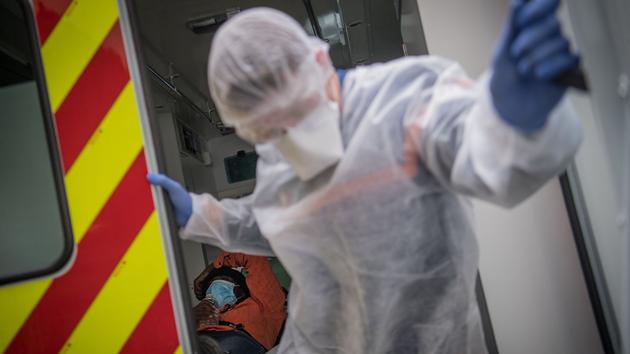Hubert Rodarie is the founder of the thinktank Chronos.
COVID-19 reintroduces into our lives what we believed definitively dismissed by technical and scientific progress: the return of uncalculable uncertainty. This uncertainty causes fear, but has the merit of revealing the qualities and weaknesses of our social constructions. Ten years after the 2008 - 2009 crisis, the arrival in winter 2019 - 2020 of COVID-19 is the second test of the way we live individually and collectively. Indeed, our societies have been transformed in particular by two movements of funds which have installed the primacy of the individual and rationality as the only tool for justifying behavior and institutions. This led to the obliteration of mediating institutions or intermediary bodies to facilitate mobility and the choices of each.
Since the 1940s, these movements have made their mark first in the Anglo-Saxon world and then in the West. Thus from the 1970s, traditional societies, hierarchical, seen as organic, succeeded a system (in the sense of general systems theory) globalized and built on the model of machines. The individual is rationally guided in all aspects of his private, economic and social life by processes , standards and self-regulatory mechanisms. The government of peoples has been replaced by the governance of systems. The main principles which united societies have been replaced by rationality and economic balance to justify individual behavior and the existence of collective institutions. Everything is calculated and evaluated. Virtue and moral commitments have been replaced by norms and contractual obligations of means. Confidence has been replaced by the finicky desire to have their rights respected, and even, in the worst case, general distrust.
Logically, these developments led to the emergence of the concept of "risk" that Ulrich Beck, a German sociologist, had pointed out in La Société du RIS (1970), and which he then rightly attributed to the growing individualization and the loss of solidarity. Since then, this individualization has continued and the risk has invaded the space. It is mapped, evaluated and measured. The loss of solidarity is visible: the gift, the moral obligation, the personal surpassing in the service, all these surplus of service and attention brought by committed and responsible people are no longer recognized in a society governed mainly by the number and the market, where what is priceless, unquantifiable, does not exist.
The more the authorities demand to deal with the risks identified, the more the "real risk" tends to disappear from speed cameras.In this logic, the real risk, which is also non-calculable, is no longer treated. The more the authorities demand to deal with the risks identified, the more the "real risk" tends to disappear from speed cameras. It can be denied because it is not seen by the models; its occurrence is so hypothetical that it is easy to silence those who invoke it. And Artificial Intelligence cannot find it in the absence of recurrent data. When this real risk arises, no one feels responsible for the lack of preparation. We then speak of black swan, we enter the tautology: it was not predictable therefore not expected. But this swan is only an expression of the limit of a reductive rationality.
This is what we are experiencing with COVID-19: seasonal flu has been around for a long time, very quickly the services were able to identify the virus and detect it, but its characteristics exceed those of the “normal” framework of seasonal flu. The word "normal" must be underlined because we are experiencing what the financial world experienced in 2008 - 2009. False conceptions permeated the prudential and regulatory systems of the financial markets. The new models for calculating financial risks seriously underestimated them, assuming that contingencies are governed by a “normal” law. Consequently, the traditional control systems had been disconnected in view of this ability to calculate the risk and adequate equity. It was a failure. However, these faulty models have not been substantially amended. Why? The reason is simple: the existence of a permanent and irreducible uncertain is refused, because it shocks a modern mainly scientist tendency which imposed the authority of the expert, to the detriment of the sage capable of thinking and preventing the consequences of this uncertain by setting limits. It also invalidates the disqualification of economically unjustifiable institutions which oblige, even without a contract, individuals to support themselves.
After the 2008 crisis, and faced with this second test, it is important to envisage a profound questioning of these choices and attitudes without waiting for the pressure of extreme events which could destroy the progress made in many areas.






/cloudfront-eu-central-1.images.arcpublishing.com/prisa/KMEYMJKESBAZBE4MRBAM4TGHIQ.jpg)



